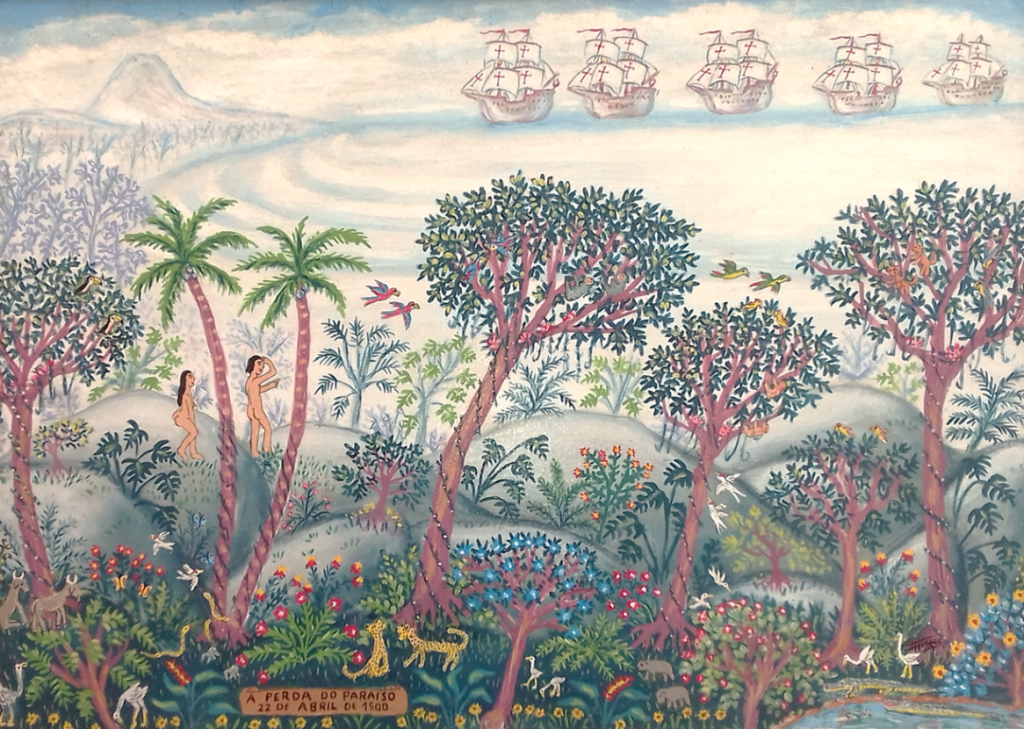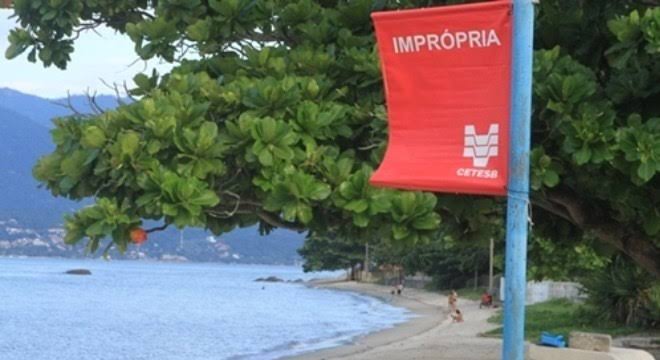SÃO PAULO, BRAZIL – One beautiful weekend morning many years ago, wandering among the artists showing and selling their paintings on the edges of São Paulo’s Praça da República, I discovered and purchased a lovely work entitled, ‘The Loss of Paradise: 22 Abril de 1500’ (‘A Perda do Paraíso’) painted by a wonderful Brazilian naïve artist, Tavares.
Two natives, surrounded by flora, fauna and animals, look out over the pristine beach at five caravels heading in to land and ‘discover’ Brazil. When originally purchased 20 years ago, like the exaggerated number of ships, the painting’s title seemed perhaps a bit pessimistically overstated; looking at things today as we enter a new decade makes me wonder if indeed it was.

With all of our recent history, the ‘Lava Jato’ scandals, the jailing of ex-President Lula for corruption, the impeachment of his successor Dilma Rousseff and the election of right-wing Jair Bolsonaro as president, we need to take a deep breath as we gaze into our crystal balls and try to imagine what the future holds.
Is there still life in that tired cliché question: “Is Brazil the country of the future and will it always be?” Or has its promised future been dissipated by its current malaise?
There is no question that we are at a critical moment in history and a dangerous one. ‘New York Times’ opinion writer Ross Douthat has perceptively labeled the recent past, ‘The Decade of Disillusionment’ where we have seen our hopes for a more ordered world with international institutions ascendant and millions raised from poverty to sustainability or better.
But just as things were looking more promising, a tsunami of conservative populism began to engulf the world propelled by fear that the comfortable ‘haves’ might be threatened by the uncomfortable ‘have nots’, refugees were no longer seen to enrich our societies but to endanger them.
Nowhere was this more evident than in the election and presidency of Donald Trump, the planned departure of Britain from the European Union and the growing dictatorial ambitions of Latin America’s politicians leading to growing chaos in the streets.
For those of us from abroad who love Brazil and have opted to make our homes here, we are forced to ask if the current national mood and situation is simply a bump in the already potholed road to that glorious future or something more serious? Is the paradise we imagined lost, or is it only delayed? The prognosis is not encouraging.
“42 percent of The Beaches in Brazil’s Top Tourist Cities Are Polluted” headlines ‘Folha’, citing research that “assessed 663 locations between November 2018 and last October. The data do not take into account the effects of the oil spill that hit 11 states and 15 of 31 monitored municipalities.”
With President Jair Bolsonaro’s anti-environmental edicts undermining an already precarious ecological management, ‘Folha’s’ comment that “Research shows the pollution is worsening” is certain to be correct.
On an international rating scale, the air quality of Brazil’s main cities varies between acceptable and poor. One wonders if the massive international televised advertising campaign encouraging visits to enjoy the many splendors of the State of São Paulo is money well spent. As the saying goes: you can put lipstick on a pig but it is still a pig.

As an almost mirror reflection of the US under President Trump, those things which collectively make life better or endurable for the lower-income segments of the population – food support for the poor in the widely copied Bolsa Familia program, access to technical education and employment and investment in culture have all become casualties of the Bolsonaro ax.
Why isn’t there money to continue or expand these initiatives? Because the government needs these resources to pay for higher government salaries and social security just as Trump’s massive tax cut for the rich has meant savage cuts in spending for the poor.
Vanessa Barbara, a Brazilian journalist writing in the ‘New York Times’ asks the question of why, unlike the recent often violent protests in the streets of Chile, Colombia, Equador, Paraguay, Peru, Haiti, Bolivia and Venezuela, the Brazilian streets are so calm despite the many issues that cry out for protest and change? Her answer can be summarized as fear, a very real leftover from the memory of Brazil’s former military dictatorship.
“Perhaps it’s because of the government’s terrified pre-emptive reaction to the wave of protests sweeping Latin America. In late October, the president revealed that the government was monitoring political developments and that the army was prepared to intervene. One month later, Mr. Bolsonaro submitted a bill to expand the so-called “excludente de ilicitude” — an article in Brazil’s criminal code that allows impunity for some illegal acts in special circumstances, including those practiced by law enforcement officers.”
As we enter the next decade, there is a feeling in the air that as we hear the thunder of discontent in the distance, Brazil may just be experiencing the calm before the storm that will bring dramatic change not just for Brazil but for the world?
Might it be a world catastrophe or a renaissance? And might it be the moment when paradise is still on the horizon or has been lost forever?

